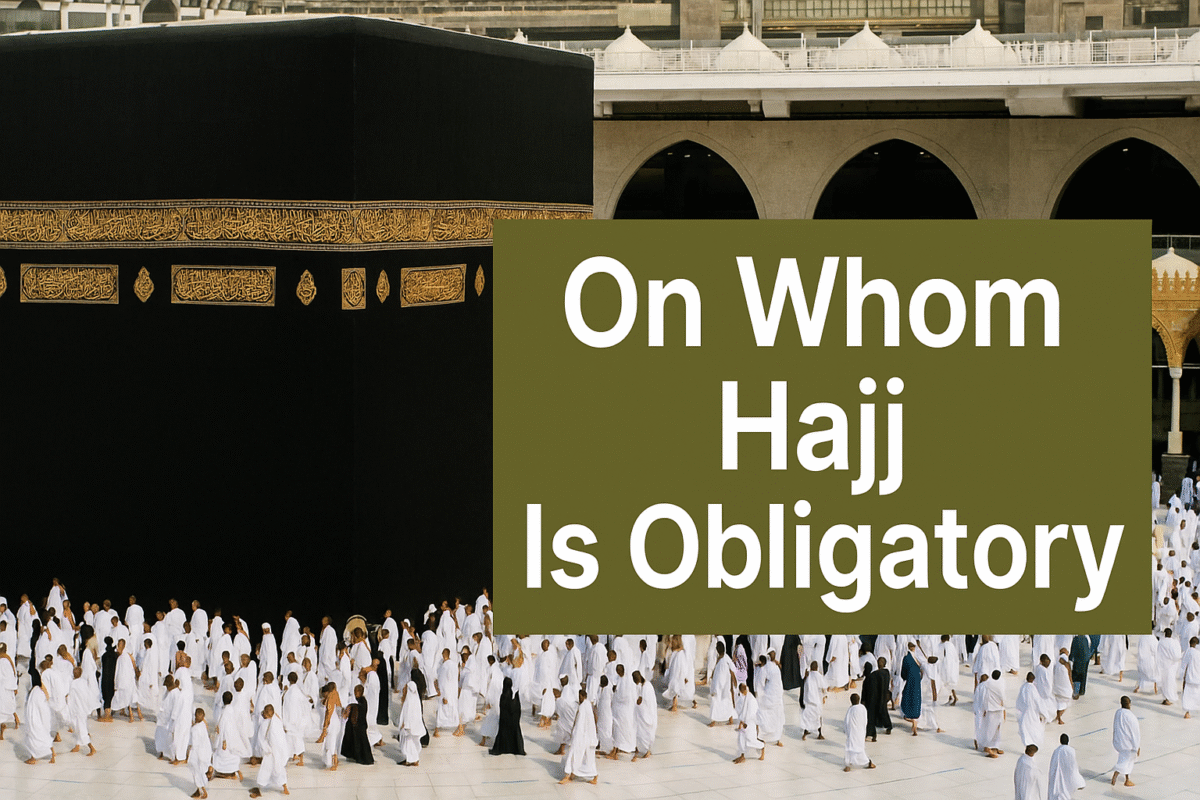Islam presents a comprehensive system of worship that nurtures a person spiritually, ethically, and socially. Among these acts of worship, one of the most significant pillars is the Hajj. This pilgrimage is not merely a physical journey; it is a profound expression of devotion, spiritual cleansing, and a powerful symbol of global unity. Hajj is obligatory once in a lifetime for every Muslim who is financially and physically capable. In this article by The Classy Books, we explore the conditions that make Hajj obligatory, the consequences of delaying it, and the Islamic stance on those who miss this sacred obligation.
Who Is Obligated to Perform Hajj?
Not everyone is required to perform the Hajj. According to Islamic teachings, Hajj becomes mandatory only when two main conditions are met:
- The individual must have sufficient financial resources to cover travel expenses to and from Makkah. You can also read about Selflessness in Hajj here.
- The person must be in good health, able to endure the physical journey, even with transportation.
If someone never experiences good enough health during the Hajj season, even if wealthy, the obligation of Hajj does not apply to them.
Clarifying a Common Misunderstanding
Many people mistakenly believe that if wealth is lost after Hajj becomes obligatory, the duty no longer applies. This is incorrect. Once an act of worship becomes obligatory, it remains a responsibility until fulfilled.

For example, if a person reached adulthood at age 15 or 18 and had enough money and health between Shawwal and early Dhul-Hijjah but chose not to go for Hajj, the duty still stands. Even if later, in their 20s or 30s, they lack the financial means, the obligation of Hajj remains. Delaying it without a valid excuse is a sinful act, just like missing a prayer and not making it up later.
Delaying Hajj Without Just Reason
Many people delay Hajj despite having the means, citing reasons like home construction, children’s weddings, or business concerns. However, postponing Hajj without a valid reason is not allowed in Islam. Even if one eventually performs Hajj, they may still bear the sin of delay.
The Prophet Muhammad (peace be upon him) said:
“Whoever intends to perform Hajj should do so quickly.” (Abu Dawood)
Waiting for the “right time” or saying, “I’ll go next year,” is a risky assumption. There’s no guarantee you will have the money, health, or even life next year. Once Hajj becomes obligatory, it should be fulfilled at the earliest opportunity.
Warning for Those Who Ignore Hajj
The Prophet (peace be upon him) also warned:
“Whoever is not hindered by genuine need, oppressive authority, or serious illness, and still does not perform Hajj and dies in this state, it does not matter if he dies a Jew or a Christian.”
This hadith emphasizes that if there are no valid barriers like poverty, illness, or governmental restrictions, then neglecting Hajj is a serious offense. It reflects a willful rejection of a major obligation.
The Quran says in Surah Aal-e-Imran:
“Indeed, the first house [of worship] established for mankind was that at Makkah – blessed and a guidance for the worlds… and it is a duty unto Allah for mankind to make the pilgrimage to the House – for whoever can find thereto a way.” (Aal-e-Imran: 96-97)
The Reward of Intending Hajj
For those on whom Hajj is mandatory, it is highly encouraged to make the intention and begin preparations right away. Once the intention is made sincerely, rewards start accumulating even before the actual journey.
As the Prophet (peace be upon him) said:
“Actions are judged by intentions.”
Starting the process today, spiritually and financially, can bring blessings into your life and help you complete one of Islam’s most important obligations.
Conclusion
Hajj is a sacred duty that holds immense spiritual, personal, and communal value. If you meet the conditions, don’t delay. Begin your preparations and fulfill this pillar of Islam with sincerity. Delaying without a valid reason not only risks sin but also forfeits immense blessings.
FAQs
Is it a sin to delay Hajj once it becomes obligatory?
Yes. According to Islamic teachings, once Hajj is obligatory, delaying it without a valid reason (like illness or lack of access) is considered sinful. Performing it later does not erase the sin of unjustified delay.
What if someone had the means for Hajj but later lost them?
If a person met all conditions for Hajj at any point in life and failed to go, the obligation remains. Losing wealth later does not remove the duty. The person is still required to make up the missed Hajj when possible.
What are the benefits of making the intention for Hajj early?
Making a sincere intention to perform Hajj brings immediate spiritual reward. The Prophet Muhammad (peace be upon him) said, “Actions are judged by intentions.” Starting early helps with preparation and keeps you focused on fulfilling this vital act of worship.

